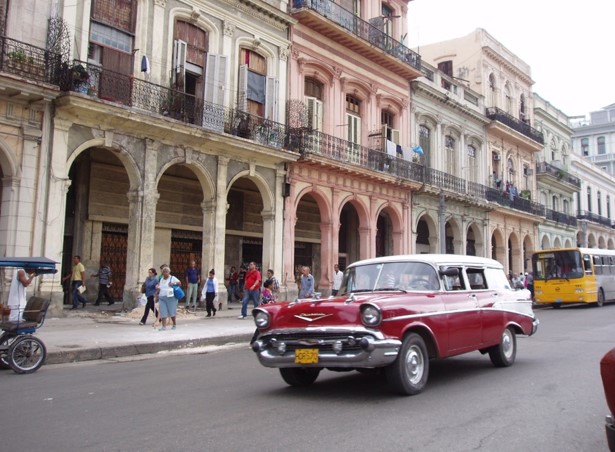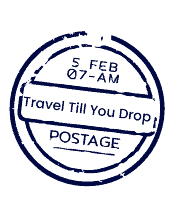
Cuba is the biggest island in the Caribbean Sea. Here I’ll share the complete guide on how to travel to Cuba. Cuba and its neighbors shape the Greater Antilles, a chain of islands that made millions long ago when two of Earth’s tectonic plates collided. Tall mountains and rolling slopes cover approximately one-third of Cuba. The other two-thirds of the island are marsh fields utilized basically for farming.
While Cuba is now much safer to travel to, I will teach you how to travel to Cuba, there are some warnings and restrictions that are given as follows:
Table of Contents
The best time to go to Cuba is not just a matter of weather, it’s also a matter of whether you are allowed to enter the country. As a country with a communist government, picking up entry into Cuba requires extraordinary consent. So, make sure you do your research to ensure you are eligible, you need to learn how to travel to Cuba and understand which criteria and visa type you will fit into.
Travelers to Cuba must have a valid passport. To avoid having to upgrade any travel reports during your stay, make any doubt your passport has enough pages and time left on it for the aggregate of your trip (in a perfect world, a few months longer). It must have six months of validity at the time of entry.
Cuban tourist visas are moreover required for all guests. Entering Cuba without government authorization — your 30-day traveler visa — is unlawful, and can result in arrest and imprisonment. In case that’s not the kind of wild trip you’re seeking out, apply for a Cuban visa at the nearby government office or department of Cuba.
Canadian citizens can enter Cuba without a Cuban visa in case the trip is for tourism purposes, but they must have a visa for any commercial travel.
Currently, the only required vaccination is yellow fever. This only applies if you are arriving from a region with yellow fever, like Brazil or Colombia. Vaccinations are recommended for travelers to Cuba. These include hepatitis A, typhoid, and cholera. The exact vaccines that will be recommended vary based on your itinerary.
Although vaccinations are not required to enter Cuba, an immigration officer may check for verification of necessary medical requirements once you arrive. Cuba does not acknowledge U.S. protection approaches, and you may require additional precautions. Call your insurance provider to see in case you’ve secured abroad, or apply for insurance with Cuba’s Travel Protections organization.
It’s critical to note that the U.S. government still does not authorize how to travel to Cuba. Travel must drop into one of these 12 categories to be considered legitimate:
So, if you are a citizen of the United States and want to travel to Cuba, you must have a Cuban visa that falls into one of the above-mentioned categories. In this way, you can have a safe and secure trip.

Here are some major airlines that will take you straight to the heart of Cuba:
American Airlines:
Keep in mind, my fearless explorers, that the availability of flights can vary depending on the season. Airlines may increase or decrease the frequency of flights based on demand. So, do your homework and plan accordingly. Don’t let a little thing like availability rain on your Cuban parade!
When it comes to finding the best flight deals, we’ve got some powerful tools at our fingertips. Utilize online booking platforms like Expedia, Kayak, or the airline’s official website to compare prices and hunt down the sweetest deals. It’s time to channel your inner deal-hunting diva and score the best bang for your buck!
If you want to take your Cuban adventure to the next level, consider reaching out to travel agencies specializing in Cuban travel. They might just have exclusive deals or packages with specific airlines that will make your experience even more unforgettable.
Cuba operates on a dual currency system, with the two main currencies being the Convertible Peso (CUC) and the Cuban Peso (CUP). The CUC is primarily used by tourists and is pegged to the U.S. dollar, while the CUP is the local currency used by Cuban citizens. As a tourist, you may come across CUP when dealing with local markets and vendors.
So, you’ve arrived in Cuba, ready to take on the world. But first things first, let’s get you some cold hard cash. Exchange your currency to CUC, baby! You can find currency exchange services at the airport, hotels, and official exchange offices like CADECA.
Money, money, money! We all want a fair value for our hard-earned cash, right? Check those exchange rates, darling. They can be as unpredictable as the weather, so stay in the know to avoid being shortchanged.
CUC is the currency that reigns supreme in tourist land. It’s like the VIP pass for all your transactions. But hey, don’t forget about the underdog, CUP. Having a little bit of this local currency can be pretty handy for those quirky local markets and smaller transactions.
In Cuba, cash is the ultimate ruler. Sure, some places might accept credit cards, but don’t rely on that plastic fantastic. If you want to conquer the remote areas and truly wander off the beaten path, make sure to have plenty of cash on hand. Trust me, it can save you from some serious “transaction denied” moments.
ATMs are available in major cities, and maybe some of them will accept your international card. But let’s not forget that reliability can vary like the weather on a tropical island. Don’t rely solely on ATMs, my fearless friend. It’s essential to have sufficient cash on hand, especially in more remote areas where ATMs are about as rare as a unicorn sighting.
Smaller businesses and taxis may not have the luxury of having sufficient change for your Benjamin Franklins. So, save yourself the headache of being stuck with a gigantic bill that no one can break and splurge on smaller denominations. Trust me, it’s worth it.
Budgeting and expenses…the dynamic duo of financial independence. Planning your budget and estimating your expenses in advance is like having your very own superhero sidekick. It helps you manage your currency more effectively during your stay in this wild world. So, grab your calculator and spreadsheet, and let’s get down to business.
Now, we all know the pain of being left with excess CUC at the end of a fabulous trip. It’s like clinging to the memories of a love affair that’s come to an end. But fear not, because I have a tip that will save you from heartache. Consider exchanging money in smaller amounts as needed. This way, you won’t be the poor soul sobbing over a stack of unused bills. Oh, and don’t forget to save those exchange receipts! You might need them to convert any leftover CUC back to your home currency.
Oh, currency scams. They’re like the annoying mosquito buzzing in your ear while you’re trying to enjoy a beautiful sunset. But we’re not here to let some shady scammer ruin our amazing solo adventure. Stick to official exchange offices, my friend. Trust the professionals, and don’t fall for the false promises of better rates on the street. Stay savvy, stay smart, and stay one step ahead of those sneaky scammers!
If you’re rocking those credit or debit cards issued by U.S. banks, listen up. The ongoing U.S. embargo might put a little damper on your spending spree. Some American cards may throw a hissy fit and refuse to work in Cuba. It’s the banking version of “Sorry, not sorry.” So before you hit the road, check with your bank to see if your card is up for the Cuban adventure.

When it comes to internet access in Cuba, you’re in for a unique experience. Check out this detailed guide on how to handle limited connectivity so you can stay connected while exploring this epic destination.
Cuba’s historically limited internet access may leave you feeling like you’re in the Stone Age of technology. Improvements have been made, but let’s just say that the connection can be slower than a molasses-dipped turtle. Manage your expectations, my friend.
Purchase those coveted internet cards, aka “Tarjetas Nauta,” to access Wi-Fi zones. You can snag them at ETECSA (Cuba’s telecommunications company) offices, hotels, and designated locations. Trust me, these cards are like gold in the internet desert.
Wi-Fi zones…the oasis in the digital desert! These beloved areas are usually found in parks, hotels, and some public spaces. Keep your eyes peeled for those glittery signs indicating Wi-Fi availability.
Some hotels offer Wi-Fi services, either in designated areas or in rooms. But before you start drooling over 24/7 internet access, double-check whether it’s included in your stay or requires an additional fee.
Now let’s talk about internet speed and reliability. Be ready to move at the pace of a sloth on a lazy Sunday afternoon. Connections may be slower than what you’re accustomed to, and there may be occasional outages.
Listen up, ladies. Those internet cards aren’t forever! They typically come with a specified duration of use (e.g., one hour). So be mindful of the time remaining on your card to avoid being unceremoniously disconnected.
Comfortable walking shoes are essential, especially if you plan to explore the cities by foot.
No matter when you decide to go, always remember to Travel Till You Drop!


Hi, Jill Here
Hi! I’m Jill, a Dallas, Texas girl traveling the world. After a career in the Air Force and touring over 50 countries later, my need to explore keeps going! It’s time to rock & roll and find all those places I never knew I was missing.
Table of Contents
Join me to get exclusive travel tips, giveaways and more!
Gallery
Copyright © 2023 | All Right Reserved